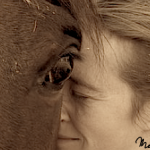NSAIDs and dehydration
| January 7, 2013 | Posted by Melinda under Uncategorized |
Excuse me for being presumptuous…..but I have a New Years resolution for you.
“I will not give my horse bute, or any other NSAID if there is even an hint of dehydration”
(repeat the previous line, as many times as it takes to imbed it into your consciousness)
Separating out the companion animals from the food animals and setting the horse into the companion animal category for a moment……
–> horse owners are unique among companion animal medicine in that we often take matters of vetmed into our own hands. To our credit, timely intervention of horse owners often lessens suffering and contributes to a speedy, complete recovery. Many horse vets of comfortable sending their horse clients home with all sorts of prescription drugs such as bute for use as needed.
Great! You have drugs that you might need! And being full of common sense and discernment, my bet is that you use those drugs appropriately 99 percent of the time.
But there’s one risk that I don’t think vets emphasize enough when they hand over the bute.
DON’T EVER NEVER EVER GIVE BUTE TO A DEHYDRATED HORSE.
If you are like me, you’ve heard ride camp vets say that one danger of giving bute to a dehydrated horse is that it’s unpredictable in dosage. A normal dose can act like a much bigger dose in a dehydrated horse, which can be hard on the kidneys.
That was the extent of my understanding until I went through my renal (kidney) block last semester.
What I learned will keep me from ever ever EVER casually dosing my endurance horse with bute after a ride, or even the morning after a ride.
Historically, if my horse looked a bit sore after a ride, but otherwise was eating and drinking, I’d often give some bute to reduce the amount of inflammation and soreness in the muscles to aid in recovery. Especially if I had a long trailer ride in the morning and I felt like my horse was eating and drinking appropriately, its very possible that I would give a dose of bute in the morning before the trip home.
With the research highlighting the dangers of inflammation, both in my life and my horses I felt motivated to limit inflammation and soreness as much as possible.
However I will NOT be utilizing bute at rides or the morning after since learning the following:
1. Horses seem to be very sensitive to the effects of NSAIDs (bute) when dehydrated compared to other animals. During hypovolemia (decease in blood volume) that occurs during dehydration, adding NSAIDs to the mix predisposes them to papillary necrosis. It rarely produces clinical signs.
Just in case using all those long words and tame sounding sentences doesn’t quite produce the impact, let me put it a different way.
When you give your dehydrated horse bute, you cause parts of their kidneys to rot.
Necrosis doesn’t reverse itself. The amount of kidney your horse is born with is the amount of kidney it has to last them for their entire life. Kidneys don’t repair or replace themselves. Necrosis equals kidney that is lost forever,
You can lose a certain amount of kidney before you see any signs. it can be completely asymptomatic until one day your horse loses enough kidney that BAM! Kidney disease……
Considering that horses can be many percentage points dehydrated before there’s ANY clinical signs, why would you risk giving bute after a ride? Since it is documented that there is a certain amount of dehydration that occurs for every hour that a horse spends in a trailer, why would you bute before trailering the horse home?
2. What about the muscle soreness and inflammation? The human research that is coming out in exercise physiology is the only way to prevent delayed onset muscle soreness (DOMS) is to properly condition for the activity. Once youve over done it, the only treatment is time. Massage, NSAIDs (before or after) ice baths etc DO NOT REDUCE THE DURATION OR DISCOMFORT ASSOCIATED WITH DOMS. In fact, NSAIDs may reduce the muscles ability to adapt to the work load.
So I ask again? Why would you give Bute to a potentially dehydrated horse after a hard ride? To risk kidney damage? To hinder the muscles ability to adapt to the work out?
Of course, if your horse has an issue that requires veterinary care and the alternative to not treating is worse than the treatment, than of course you work with your vet to take care of the horse. However, recognize that a horse coming off of a long trailer ride, or post endurance ride is a compromised horse. I personally would seek the advice of a vet before treating with any medications if I wasn’t at home, with a well-rested horse that I knew wasn’t metabolically compromised, including hydration status.
Information came from the 20 minutes book, Zachary veterinary pathology book(which is where the image came from as well), information presented at the 2012 aerc convention, and lectures in my renal block at vet school.












most of the time – and the vet doesn’t even consider that their endurance clients regularly deal with a horse under a large amount of physical stress that is almost certaintly dehydrated. It’s a unique set of circumstances. Doesn’t excuse it….but I can see why it happens. I think one reason that vets may not say things like this as strongly as they might is that they don’t want to scare the client into refusing treatment that in the scope of the illness/injury that the vet is trying to treat is a manageable risk. For example, when talking about euthansia risk, we are coached very carefully in the words we are to say about the risk, in order to both obtain “informed consent (meaning that they understand that their pet could die), BUT to also make it as likely as possible that the owner will agree to a procedure that we think is necessary. So, when the horse is suffering from laminitis, or we are perscribing bute because of a bowed tendon eetc., we don’t necessarily want to spend an hour reasurring the client that we aren’t worried about kidneys and we have taken that into consideration and that it is worth the risk because not treating is much worse etc etc……..but I think it’s a disservice to send a client home with a perscription for an Rx drug “just in case” and not make them fully aware of the risks –> No drug (over the counter or Rx) is benign and completely safe; and the damage may not be seen for a very very long time. It’s like the people that feed full alfalfa for 20 years with not problems….but then you find out that they sell their horses before they’ve had them for 5 years and mysteriously all of their clients that buy their horses have to deal with stones……..There may be a competitor that gives bute post competition for years to all their horses, but then you find out that they donn’t compete their horses over time, but mysteriously seem to have a sensitivty to bute and show signs of kidney issues when the horses are older and being treated for a bought of laminitis etc. Damage accumulates over time in organs such as the kidenys.
I think one reason that vets may not bother to state this risk is because endurance horses are a tiny subset of the horses they see. When treating an endurance horse at a ride, after a ride etc. I think that vets experienced with endurance propably think about hydration status more and don’t assume that a horse is fully hydrated just because it looks like it is. That was one take away point I got from last years convention is that many vets that may be treating your horse after a ride, may not be familiar with endurance and simply don’t know that small amounts of fluids may make a difference in a potential tye up (conventially we are taught that unless you can give/horse needs a LOT of fluids, don’t bother) etc. We put a unique stress on our horses. I gather that papillary necrosis with NSAIDs mostly occurs in horses treated more long term with NSAIDs for other conditions (acute) where the dosage is more, it is being given more often, fluids may or may not be given concurrently etc. And for the normal owner, I think it isn’t a big deal
Whoa! That is extremely important information. Thank you so much for spreading the word.
What shocks me is that my vet happily sold me a big tub of bute and said nothing at all about any contraindications of usage. Why make it an RX drug if they’re just going to hand it over and then not tell you anything about it? I might as well go to a feed store and buy it – I’d be just as uninformed!
Yikes! Thanks for sharing! Reading your blog is like the cliff notes for vet school. =)
This has been in my post idea list for MONTHS and my regret is that I haven’t found the time to post earlier!
I’m grateful that I learned this through a book/teachers and NOT through personal experience!
“Excuse me for being presumptuous…”
NEVER NEVER NEVER apologize for giving potentially life saving/damage preventing information to us.
I had no idea.
Thank you,
Bill